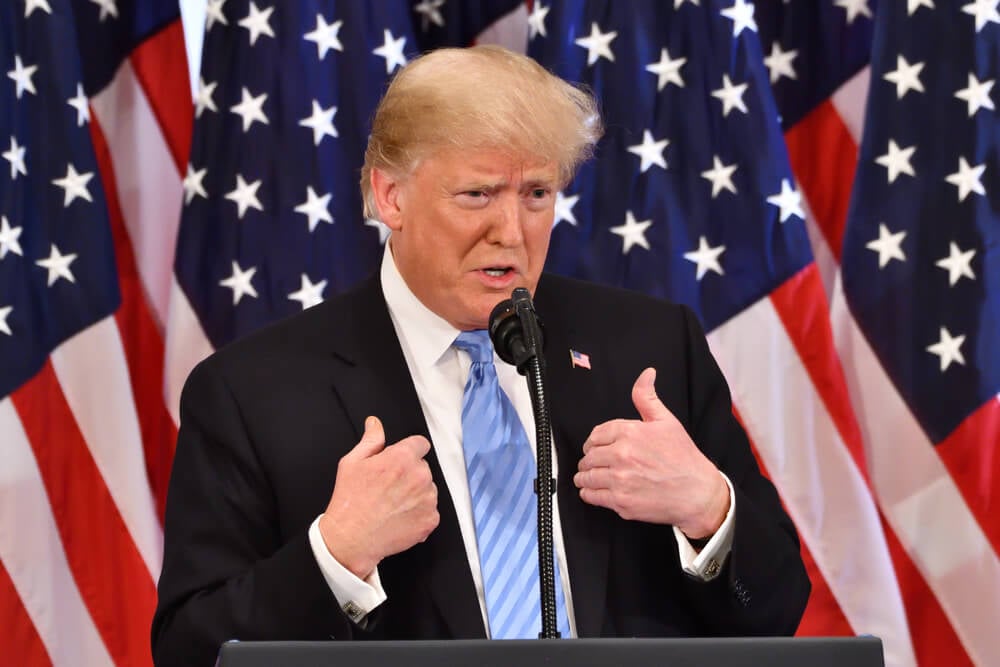According to the International Monetary Fund’s Articles of Agreement, the Fund’s main purpose is to facilitate the balanced growth of international trade and thereby promote high levels of employment and real (inflation-adjusted) income.
Yet with globalization facing its greatest threat in the postwar period, and with global external economic imbalances set to rise, the IMF seems to be missing in action.
Instead of pursuing an active role in reducing external imbalances, it is focusing on issues that lie beyond its remit, such as climate change and gender equality.
Why hasn’t the IMF called attention to the principal reason for today’s global external imbalances?
Contrary to what US President Donald Trump seems to think, these imbalances result not from import tariffs or exchange-rate manipulation, but rather from inappropriate macroeconomic policies maintained by deficit and surplus countries alike.
Those countries with large trade deficits follow monetary and fiscal policies that induce them to spend more on consumption and investment than they produce.
Conversely, those running large trade surpluses have macroeconomic policies that induce them to spend less on consumption and investment than they produce.
Or, as John Maynard Keynes taught us, deficit countries are those where national savings fall short of investment, and surplus countries are those where national savings exceed investment.
Why China and Germany have consistently run large trade surpluses?
Viewed through this lens, it is easy to understand why, despite the first Trump administration’s higher import tariffs, the US external current-account deficit actually increased by some 35% (from $480 billion to $647 billion) between 2016 and 2020.
This was because the administration’s trade policies – tariffs on imports from China and on steel and aluminum – were accompanied by the 2017 Tax Cut and Jobs Act (TCJA), which reduced domestic savings by increasing the budget deficit, and increased investment by incentivizing such activity through lower corporate tax rates.
Until very recently, Germany maintained a “debt brake” that restrained public spending, and thereby maintained a high level of public savings
The same perspective also helps one understand why China and Germany have consistently run large trade surpluses in recent years.
China has done so because its households have saved at an unusually high rate in the absence of a social safety net that will support them in old age; and Germany has done so because, until very recently, it maintained a “debt brake” that restrained public spending, and thereby maintained a high level of public savings.
The US external trade deficit
Fast-forward to 2025. Even though the US budget deficit stands at a worrying 6% of GDP, the Trump administration is proposing another major tax cut that will increase it further.
Trump aims not only to extend the TCJA, but also to eliminate income taxes on tips and overtime pay, and provide a $4,000 tax deduction for those over 65.
A larger budget deficit can be expected to widen the US external trade deficit for much the same reason it widened during the first Trump administration
According to the Committee for a Responsible Federal Budget, these changes could add over $5 trillion to the budget deficit over the next decade.
Once again, a larger budget deficit can be expected to widen the US external trade deficit for much the same reason it widened during the first Trump administration.
Where is the IMF?
So, where is the IMF? Why isn’t it pounding the table about the dangers that Trump’s tax cuts would pose to the world economy, if enacted?
A further widening of the US trade deficit at this juncture could lead the Trump administration to double down on its retaliatory import tariff policy. And if it does, US trade partners can be expected to retaliate, resulting in the kind of economically destructive beggar-thy-neighbor policies that proved so disastrous in the 1930s.

Where is the IMF? Why isn’t it pounding the table about the dangers that Trump’s tax cuts would pose to the world economy, if enacted? - Desmond Lachman
Beyond warning about the likely worsening of external imbalances as a result of a wider US budget deficit, the IMF should be devising a blueprint to resolve today’s global imbalances in a manner that does not bring on a global recession.
Such an undertaking could include recommendations as to how the US might restore order to its public finances; how China can increase household consumption through an improved social safety net; and how Germany can stimulate European investment through substantially increased public spending.
During the 2010 European sovereign-debt crisis, the IMF played a useful role in both designing and monitoring economic programs that helped eurozone member countries restore external and internal economic balance.
If ever there was a time for it to play a similar role in exercising effective multilateral economic surveillance, this is it. Globalization is in real danger of breaking down, and one of its premier institutions is nowhere to be found.
Desmond Lachman, a senior fellow at the American Enterprise Institute, is a former deputy director of the International Monetary Fund’s Policy Development and Review Department and a former chief emerging-market economic strategist at Salomon Smith Barney.